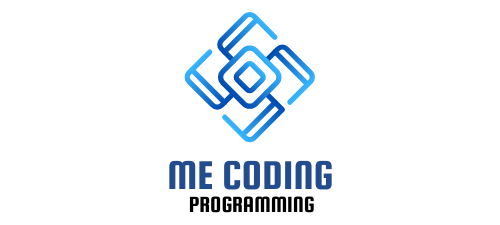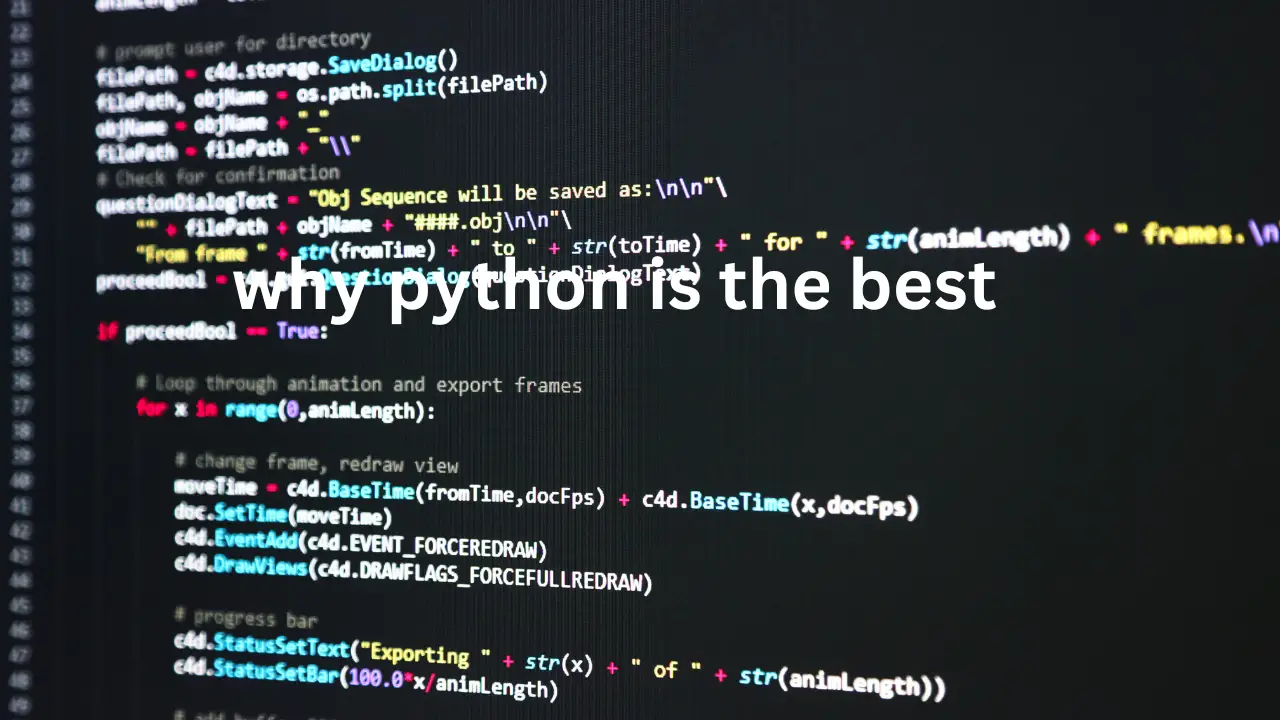Python programming has taken the world by storm, emerging as one of the most popular and versatile programming languages. Its simplicity, readability, and vast ecosystem of libraries have made it the go-to language for a wide range of applications. In this article, we will delve into why Python is the best programming language and explore its many benefits.
The Versatility of Python
Python’s versatility is one of its greatest strengths. It finds applications in various domains, making it a favorite among developers. Whether you’re working on web development, data science, or automation, Python has got you covered.
Applications in Web Development
Python’s web development frameworks, such as Django and Flask, provide a robust foundation for creating scalable and efficient web applications. With their clean and concise syntax, developers can quickly build and deploy feature-rich websites.
Data Science and Machine Learning
Python has become the de facto language for data science and machine learning tasks. Libraries like NumPy and Pandas offer powerful data manipulation and analysis capabilities, while TensorFlow and PyTorch provide cutting-edge tools for building and training machine learning models.
Automation and Scripting
Python’s simplicity and ease of use make it an ideal choice for automation and scripting tasks. Its extensive standard library, combined with modules like Selenium and BeautifulSoup, empowers developers to automate repetitive tasks, scrape data from websites, and much more.
Python’s Simplicity and Readability
One of Python’s defining features is its simplicity and readability. Its clean and elegant syntax allows developers to express concepts in a concise manner, making code more understandable and maintainable. Python’s emphasis on readability enhances collaboration among teams and reduces the learning curve for new programmers.
Extensive Libraries and Frameworks
Python’s vast ecosystem of libraries and frameworks is a major contributing factor to its popularity. Let’s explore some of the most prominent ones:
Django for Web Development
Django, a high-level Python web framework, simplifies the development of complex web applications. It follows the “Don’t Repeat Yourself” (DRY) principle and offers built-in features like authentication, URL routing, and database management, allowing developers to focus on core functionalities.
NumPy and Pandas for Data Analysis
NumPy and Pandas are essential libraries for data manipulation and analysis. NumPy provides support for multi-dimensional arrays and mathematical operations, while Pandas offers intuitive data structures and data analysis tools, enabling efficient data processing.
TensorFlow and PyTorch for Machine Learning
TensorFlow and PyTorch are widely used frameworks for machine learning. They provide high-level abstractions and APIs for building and training neural networks, simplifying the implementation of complex models. These frameworks offer extensive support for tasks such as image classification, natural language processing, and more.
Strong Community Support
Python boasts a vibrant and supportive community of developers, researchers, and enthusiasts. This active community contributes to the development of new libraries, frameworks, and tools, ensuring that Python remains at the forefront of innovation. The availability of extensive documentation, online forums, and tutorials further facilitates learning and problem-solving.
Cross-Platform Compatibility
Python’s cross-platform compatibility is a valuable asset. It can run on various operating systems, including Windows, macOS, and Linux, without requiring major modifications. This flexibility allows developers to write code once and deploy it seamlessly across different platforms, saving time and effort.
Scalability and Performance
Python’s scalability and performance have improved significantly over the years. With optimizations and advancements in the language’s implementation, Python can handle large-scale projects efficiently. Moreover, integration with high-performance languages like C and C++ allows developers to optimize critical sections of code when necessary.
Python’s Integration Capabilities
Python’s integration capabilities are another reason why it excels as a programming language. Developers can easily integrate Python with other languages like C, C++, and Java, leveraging the strengths of each language in a single project. This flexibility opens up opportunities for code reuse, interoperability, and building complex software systems.
Python in Education
Python’s simplicity, readability, and vast community support make it an excellent choice for teaching programming concepts. Many educational institutions and coding boot camps have adopted Python as the primary language for introductory courses. Its beginner-friendly nature helps students grasp fundamental programming concepts and build a solid foundation for future endeavors.
Conclusion
In conclusion, Python stands out as the best programming language due to its versatility, simplicity, extensive libraries, strong community support, cross-platform compatibility, scalability, integration capabilities, and popularity in education. Whether you’re a web developer, data scientist, or aspiring programmer, Python provides the tools and resources you need to succeed in your endeavors.
FAQs
- Is Python a beginner-friendly programming language? Yes, Python is known for its beginner-friendly syntax and readability, making it an excellent choice for beginners.
- Can Python be used for web development? Absolutely! Python offers powerful web development frameworks like Django and Flask, allowing developers to create robust and scalable web applications.
- Are there job opportunities for Python developers? Yes, Python developers are in high demand across various industries, including web development, data science, machine learning, and automation.
- Can Python be used for scientific computing? Certainly! Python’s libraries like NumPy and Pandas provide extensive support for scientific computing, data analysis, and visualization.
- What resources are available for learning Python? There are numerous online tutorials, documentation, and coding boot camps dedicated to teaching Python. Some popular resources include Python.org, Codecademy, and Coursera.
I hope this article has shed light on why Python is considered the best programming language. Its versatility, simplicity, and extensive ecosystem make it an invaluable tool for developers worldwide. So, embrace Python and unleash its power in your projects!

